Tougher laws to check disabled parking abuse

A Red Bull Mini abusing a disabled parking space. Image by Stephen Ramsay.
According to a 2010 Seattle DOT report, about 30 to 40 percent of downtown and First Hill spaces are filled with cars possessing disabled parking permits. Out of these permits, over 10 percent were inactive – temporary placards lasting only six months. Presently, the city police estimates 60 percent of disabled placards on the street are used fraudulently. The problem has only worsened with the change in state law and disbanding of the Seattle Police Department parking enforcement unit. However, state legislators are now devising a strategy to curb disabled parking abuse, which is more rampant in Seattle than any other community in the state.
Workgroup to recommend solutions
The Washington Legislature has directed the Department of Licensing (DOL) to set up a workgroup to study the issue. The workgroup has members from the DOL, Department of Health, City of Seattle, Governor’s Committee on Disability Issues and Employment, and Arc of Washington. The workgroup has been meeting since June and will submit its recommendations by December 1.
Possible actions, the group could suggest, range from close supervision of doctors who authorize disability for a pass to establishment of a more efficient system for checking whether placards are valid. Police officials have pointed out that drivers often place placards in such a manner that the expiry date is hidden.
How other states are fighting disabled parking abuse
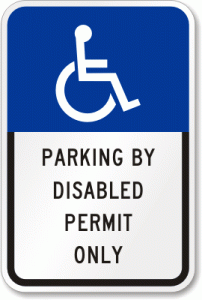
View this sign here.
After Raleigh, North Carolina introduced pay stations in 2010, those with disabled placards had to pay for on street parking too, removing monetary privileges that they once had.
Now there are fewer vehicles with placards parking on downtown streets, according to Raleigh parking enforcement agent Chip Murphy. “As soon as they had to start paying, it went away. The only group that ended up losing were those that were abusing the system with all day parking, using the placard as a front,” says Don Carter, owner of the Capital Bank building on Fayetteville Street.
The disabled have welcomed the move. “If we have to pay, we have to pay. That’s my attitude, just like anybody else. But I do need that spot,” says Gail Lashock, a legitimate placard owner. Such measures help free parking spaces and increase city revenue. Revenue has nearly tripled, from $8,200 monthly to $24,000 a month, in downtown, according to Gordon Dash, Raleigh Parking Administrator.
In Chicago, Illinois, Mayor Rahm Emanuel has decided to stop residents from reaping parking benefits through illegal use of disability placards at city’s metered spots. The city’s finance department employees will place flyers (resembling traffic tickets) on cars that display a disabled placard and are parked in metered spots. The flyer will warn drivers that people with placards or a disability license plate will not be able to park for free at metered spaces unless they get new “gray and yellow meter exempt placards.”
Controlling parking abuse at metered spots is also crucial since it puts a heavy burden on the city’s budget, a part of which is used to reimburse meter companies for free parking provided to disabled drivers. More free parking by the way of illegal use of disability placards means that it drains more money from the city’s revenues, which ultimately affects its taxpayers- the public.
Related Posts
Category: Handicapped parking

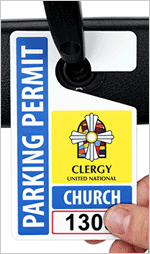

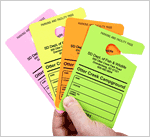
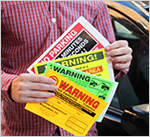

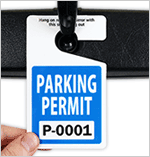
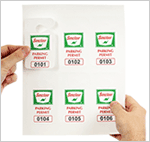
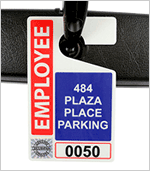
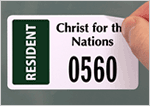

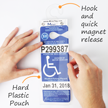





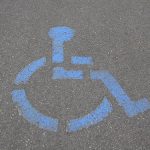





For those of you who don’t understand the difficulty of the handicapped feeding parking meters, try to put yourselves in our shoes for just a moment. It wouldn’t be so difficult if the old parking meter system had been kept in place. But when someone who struggles painfully with walking or standing problems has to walk half a block to a paybox, then back to their car with a receipt before heading toward their original destination, it places undue hardship on them. This hardship is further compounded when pavements are wet, icy or buried in snow. Not every physical disability shows on the outside or requires the constant use of a cane, walker, wheelchair or crutches, but that doesn’t mean the disabled person isn’t in intense pain or that all of the “armchair physicians” out there are any experts on their disabilities. Starting January 1, 2014, I refuse to feed any payboxes or park on any metered streets in Chicago and will gladly take all of my commercial business to the suburbs where parking lots are abundant. Since I live in the northernmost part of Chicago, this will be very easy for me to do. Perhaps Governor Quinn should spend more of his time enforcing parking penalties on those able-bodied individuals who park in the striped access lanes next to spaces reserved for the handicapped. They are not parking spaces. They are for those handicapped individuals who might need to use a ramp and wheelchair to exit their vehicles!
Hi, Irene- Anyone who thinks that people who have trouble accessing meters should somehow be expected to magically feed them deserves to be ignored! This is an issue that cities and states should deal with a lot smarter in a number of ways, though.
1. There are plenty of at least partial solutions available that make it easier for people with disabilities to pay, like mobile apps allowing users to make payments wirelessly. Municipalities use these less often than they could. I think Oak Park in northern Chicago has a system like this (though I’m not 100% sure). So there are workarounds.
2. When *all* people with placards are exempted from paying for parking – even through some other means than traditional meter-feeding – it gives unscrupulous able-bodied people an incentive to get placards they don’t actually need, from doctors (who may want to keep their regular patients), family members, etc.
In L.A., there’s evidence of placard fraud so widespread that 80% of parking spaces were occupied by people who did not have valid disabilities. I can’t speak to exactly how that study was done, but I don’t think they were just eyeballing people for disabilities. Anyway, the result is that it’s harder for people with actual disabilities to park, and no one wants that.
Chicago is kind of a special case, too, keep in mind. We think we have it bad here in NYC, but if I may say so, your parking system is already a mess!
On one hand, I don’t entirely blame anyone who wants to pay those extraordinarily high rates, knowing that the cash is going to Goldman Sachs.
On the other hand, accessible parking programs that provide *universal* payment exemptions have been abused beyond belief. Of course there are extenuating circumstances – but you hit the nail on the head when you mention Governor Quinn’s responsibility at the state level. If states did a better job of preventing fraud when giving out placards, and checked to make sure the right people had them, or at least instituted a two-tier system where the people who *could* easily pay were expected to, we’d all be better off.